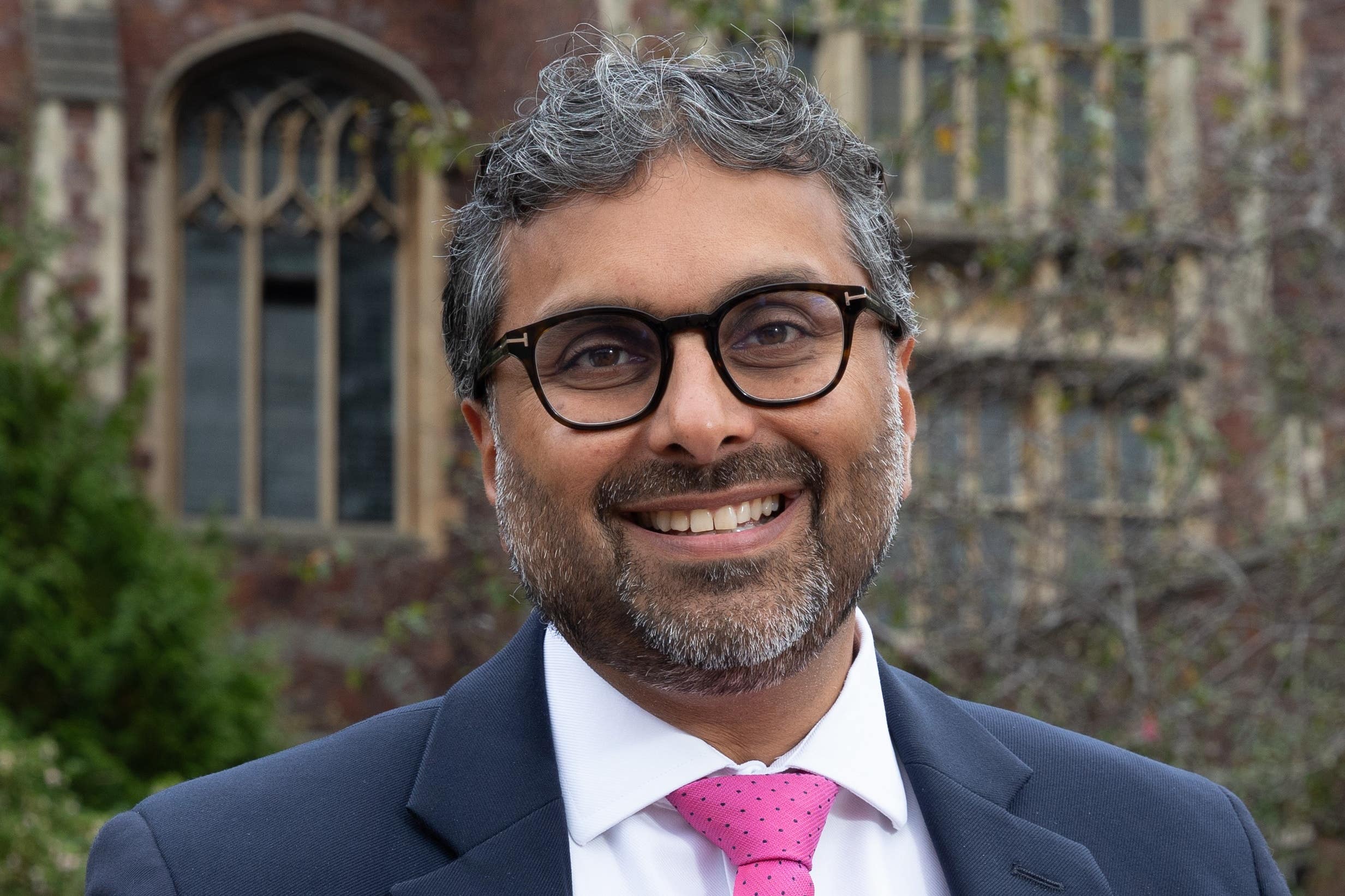Widening access to private schools harder due to ‘challenges’ sector faces
Jaideep Barot, the first non-white chairman of an elite independent schools group, has called for greater diversity in educational leadership.

Your support helps us to tell the story
From reproductive rights to climate change to Big Tech, The Independent is on the ground when the story is developing. Whether it's investigating the financials of Elon Musk's pro-Trump PAC or producing our latest documentary, 'The A Word', which shines a light on the American women fighting for reproductive rights, we know how important it is to parse out the facts from the messaging.
At such a critical moment in US history, we need reporters on the ground. Your donation allows us to keep sending journalists to speak to both sides of the story.
The Independent is trusted by Americans across the entire political spectrum. And unlike many other quality news outlets, we choose not to lock Americans out of our reporting and analysis with paywalls. We believe quality journalism should be available to everyone, paid for by those who can afford it.
Your support makes all the difference.Widening access to private schools is proving “more difficult” due to challenges facing the sector, an education leader will say.
Jaideep Barot, chairman of HMC (the Heads’ Conference), which represents the UK’s top private schools, will suggest people could “seek to minimise or dismiss” the impact of bursaries offered to poorer children.
Addressing headteachers of leading independent schools at the HMC conference in Belfast on Monday, he will urge them not to listen to claims that the sector’s partnership work with state schools is “tokenistic”.
I know how hard we all work to keep widening access to our schools in this way, and with all the challenges we are currently facing it is proving more and more difficult, but, just as with the partnerships work, we will continue doing this because it is the right thing to do, and because it makes our schools and our communities richer and stronger
His comments come as the Government plans to remove the VAT exemption and business rates relief for private schools from January to enable funding for 6,500 new teachers in state schools.
Earlier this month, Education Secretary Bridget Phillipson said wealthy private schools must continue community outreach schemes like bursaries and sharing facilities once VAT is charged on fees.
Her plea came after the Sunday Times newspaper reported that some private schools are planning to cut back on bursaries for poor children in response to the Government’s VAT increase.
On bursaries, Mr Barot, head of Bristol Grammar School (BGS), will say: “Yes, there is more we can and we will do, but I want us to ensure, while others may seek to minimise or dismiss the magnitude and impact of our work in this area, we never forget the importance of this work and the real difference it is making to lives.”
He will add: “I know how hard we all work to keep widening access to our schools in this way, and with all the challenges we are currently facing it is proving more and more difficult, but, just as with the partnerships work, we will continue doing this because it is the right thing to do, and because it makes our schools and our communities richer and stronger.”
On partnership work with state schools, he will say: “Don’t let anyone convince you it is tokenistic, as some of our naysayers might contend – you know the difference your partnership work makes in your community and your area.”
Mr Barot, who is the first non-white chairman of the HMC, will also call for greater diversity in school leadership.
He will tell conference delegates on Monday: “To paraphrase a much wiser person than me, as the first non-white chair of HMC it is my fervent hope that I am not the last.
“Looking around the room, both here and at the deputy heads conferences I have attended and spoken at, I recognise, as do we all, the scale of the challenge.
“And, of course, it is not the people in this room who appoint heads, but rather governing bodies. But we are the people who appoint the staff and leaders from whom heads tend to be chosen.”
He will add: “I hope this moment will encourage more conversations about how we can continue to support diversity in leadership, not just in terms of colour, but in terms of gender, race, sexuality, disability, religion and all the ways that matter to the communities we serve.
“This is an opportunity to focus on allowing children to see themselves represented, as well as ensuring that our organisation continues to benefit from the strength that comes from diversity.”
Mr Barot, who has lived in the UK for 49 years, said the riots in the summer had made him wonder about his family’s safety and whether the country is the “right place” for them to continue living.
But he will tell headteachers that the mobilisation against the “hateful mobs” reminded him of the “kindness and optimism that is out there if we look for it”.